Provisional programme
The conference will be held on 16th March 2015 in Oxford.
| 10:00 – 10:30 | Welcome & refreshments |
| 10:30 – 11:30 | Keynote Talk |
| 11:30 – 12:30 | Student presentations (session 1) |
| 12:30 – 13:45 | Group Photo, Lunch, and Networking |
| 13:45 – 14:45 | Sponsor Talk |
| 14:45 – 15:15 | 30 minute madness |
| 15:15 – 16:15 | Student Presentations (session 2) |
| 16:15 – 17:15 | Break and Posters |
| 17:15 – 18:15 | Career Panel Discussion |
| 18:15 – 18:30 | Closing Remarks |
| 18:45 – 19:15 | Drinks Reception |
| 19:15 | Dinner & Awards |
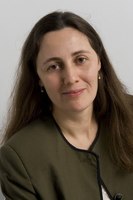
Keynote talk: "Complex systems everywhere"
The keynote talk will be given by Dr Anisoara Calinescu, University of Oxford.
Bio
Ani Calinescu holds a BSc / MSc degree in Computer Science Engineering from the Technical University of Iasi, Romania, as well as a DPhil in Engineering and an MA from the University of Oxford. Since 2002 she has been a Departmental Lecturer in the Department of Computer Science, University of Oxford. Her research interests include: modelling and reasoning about complex systems, such as financial markets and supply chains; complexity metrics; agent-based networks; emergence; information theory.
Abstract
Recent years have seen increased efforts into achieving a better understanding of how complex systems work, and into transferring this understanding into improved design, prediction and control of such systems. In my talk, I will set the scene by first introducing key features and recent results on complex systems. I will then discuss several approaches to modelling and measuring complex systems, and follow with quantitative results and qualitative insights, within the supply chains and financial markets contexts. I will conclude with several advantages and limitations of the proposed approaches, as well as more generic insights and open questions.
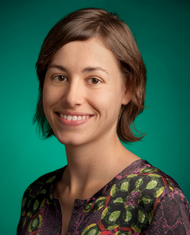
Sponsor talk
The sponsor talk will be given by Carmen Ruiz Vicente from Google.
Bio
Carmen Ruiz Vicente is a member of Google’s privacy engineering team, which is responsible for delivering and promoting tools, processes, culture and infrastructure to build privacy-robust innovative products and services. She focuses on research and development on the topic of location privacy in location-based internet services.
Prior to joining Google in 2013, she was a post-doctoral researcher at Universitat Oberta de Catalunya (Spain). Throughout her academic career she collaborated with research groups at Purdue University (US), University of Athens (Greece) and Università degli Studi di Milano (Italy). Carmen completed her Ph.D. at the Center for Data Intensive Systems (Daisy) in Aalborg University, Denmark.
Abstract
Google is an innovative company with a strong focus on engineering excellence. At the same time, it maintains a constant connection with the Academic and the Research worlds thanks to internships, scholarships, research awards, and publications.
In this talk, we will see what are the similarities and differences between the role of Google engineers and researchers. The talk will also give an overview of the principles of popular Google technologies that thousands of engineers use everyday and that resulted in external publications, including Google File System, Bigtable, MapReduce and Flume.
Student presentations
Session 1 (11:30 – 12:30)
| Zhen Bai (Cambridge) | FingAR Puppet: supporting social pretend play for young children |
| Aurore Lyon (Oxford) | Novel QRS-based biomarkers for risk stratification in hypertrophic cardiomyopathy |
| Ekaterina Kochmar (Cambridge) | Native Language Identification task and its applications |
| Mariam Nouh (Oxford) | Studying the Effects of Peer Pressure on User's Online Behaviour |
Session 2 (15:15 – 16:15)
| Luana Fagarasan (Cambridge) | From distributional semantics to feature norms: grounding semantic models in human perceptual data |
| Corina Guaru (Oxford) | Improving Robot Perception Through Experience |
| Heidi Howard (Cambridge) | Life on the Edge (Network) |
| Ana I. L. Namburete (Oxford) | Machine learning-based tool to predict gestational age from ultrasound images of fetal brain |
(back to top)
Poster Session
| Heidi Howard (Cambridge) | Life on the Edge (Network) |
| Marwa Mahmoud (Cambridge) | Automatic detection of naturalistic hand-over-face gesture descriptors |
| Ana I. L. Namburete (Oxford) | Machine learning-based tool to predict gestational age from ultrasound images of the fetal brain |
| Annalisa Occhipinti (Cambridge) | Computational models of cancer for survival prediction |
| Helen Oliver (Cambridge) | The Automagic Box of Beauty: A Prototypical Smart Device as Use Case Example for User-Centered Decision Support Via the Hub-of-all-Things |
| Elizabeth Phillips (Oxford) | Applying Social Network Analysis to Security |
| Otilia Stretcu (Cambridge) | A multi-method driven evaluation of molecular imaging techniques |
| Ana Trisovic (Cambridge) | Data Preservation in High Energy Physics |
| Menglin Xia (Cambridge) | Exploring temporal dynamics in automatic facial expression intensity estimation |
| Varduhi Yeghiazaryan (Oxford) | Progress towards unsupervised medical image segmentation |
(back to top)
Career Panel Discussion

Anisoara Calinescu (University of Oxford)
Ani Calinescu holds a BSc / MSc degree in Computer Science Engineering from the Technical University of Iasi, Romania, as well as a DPhil in Engineering and an MA from the University of Oxford. Since 2002 she has been a Departmental Lecturer in the Department of Computer Science, University of Oxford. Her research interests include: modelling and reasoning about complex systems, such as financial markets and supply chains; complexity metrics; agent-based networks; emergence; information theory.
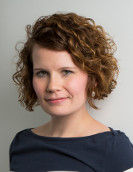
Sara-Jane Dunn (Microsoft Research)
Sara-Jane Dunn is a Scientist working within the Biological Computation group at Microsoft Research, Cambridge. She studied Mathematics at the University of Oxford, graduating with an MMath in 2007. She remained in Oxford to complete her DPhil. In 2011, having joined the Life Sciences Interface Doctoral Training Centre, and carried out her research in the Computational Biology group at the Department of Computer Science. Subsequently, she moved to Microsoft Research as a postdoctoral researcher before transitioning to a permanent position in 2014. Her current research focuses on how to understand information processing in cells, with a particular interest in stem cell biology, and developmental processes
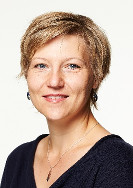
Mateja Jamnik (University of Cambridge)
Mateja Jamnik is a University Senior Lecturer at the Computer Laboratory since 2002. From 2002 till 2012 she also held the EPSRC Advanced Research Fellowship "Automating Informal Human Mathematical Reasoning". She is interested in exploring how people solve mathematical problems. Mateja computationally models this type of reasoning on computers to enable machines to reason in a similar way to humans. In particular, her research aims to investigate and mechanise some of "informal" human mathematical reasoning, such as the use of diagrams in proofs of mathematical theorems, and integrate it with classical formal techniques, like logics. Broadly, Mateja's research is in, or is related to, the areas of artificial intelligence, automated reasoning, diagrammatic reasoning, theorem proving, cognitive science, machine learning, human-computer interaction, knowledge representation. She has a family with three young children.

Marily Nika (Google)
Marily Nika was the first greek woman to receive the Google Anita Borg scholarship. The scholarship enabled her to pursue a PhD degree in Computing Science at Imperial College London where she focused in Social Network Analysis. Marily also founded the Imperial College London Women in Computing group that focused in increasing the visibility and role of women within the CS Industry. In her second year Marily did an internship at Facebook and when she completed her PhD she joined Google's Speech team, where she has been working for 1.5 years now.
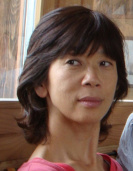
Eiko Yoneki (University of Cambridge)
Eiko Yoneki is an EPSRC Research Fellow at the University of Cambridge Computer Laboratory. She has received a PhD in Computer Science from the University of Cambridge. Her research interests span distributed systems, networking, and database with a current focus on data-intensive systems for computation of complex network and graph-structured data. Recently, her research evolved to tackle emerging issues of a large-scale graph data, which requires new methodology for data analysis and parallel processing. Prior to academia, she worked for IBM US, where she received the highest Technical Award. During her postdoctoral work, she used empirical real-world data for modelling multi-point communication protocols. More information can be found at http://www.cl.cam.ac.uk/users/ey204.
